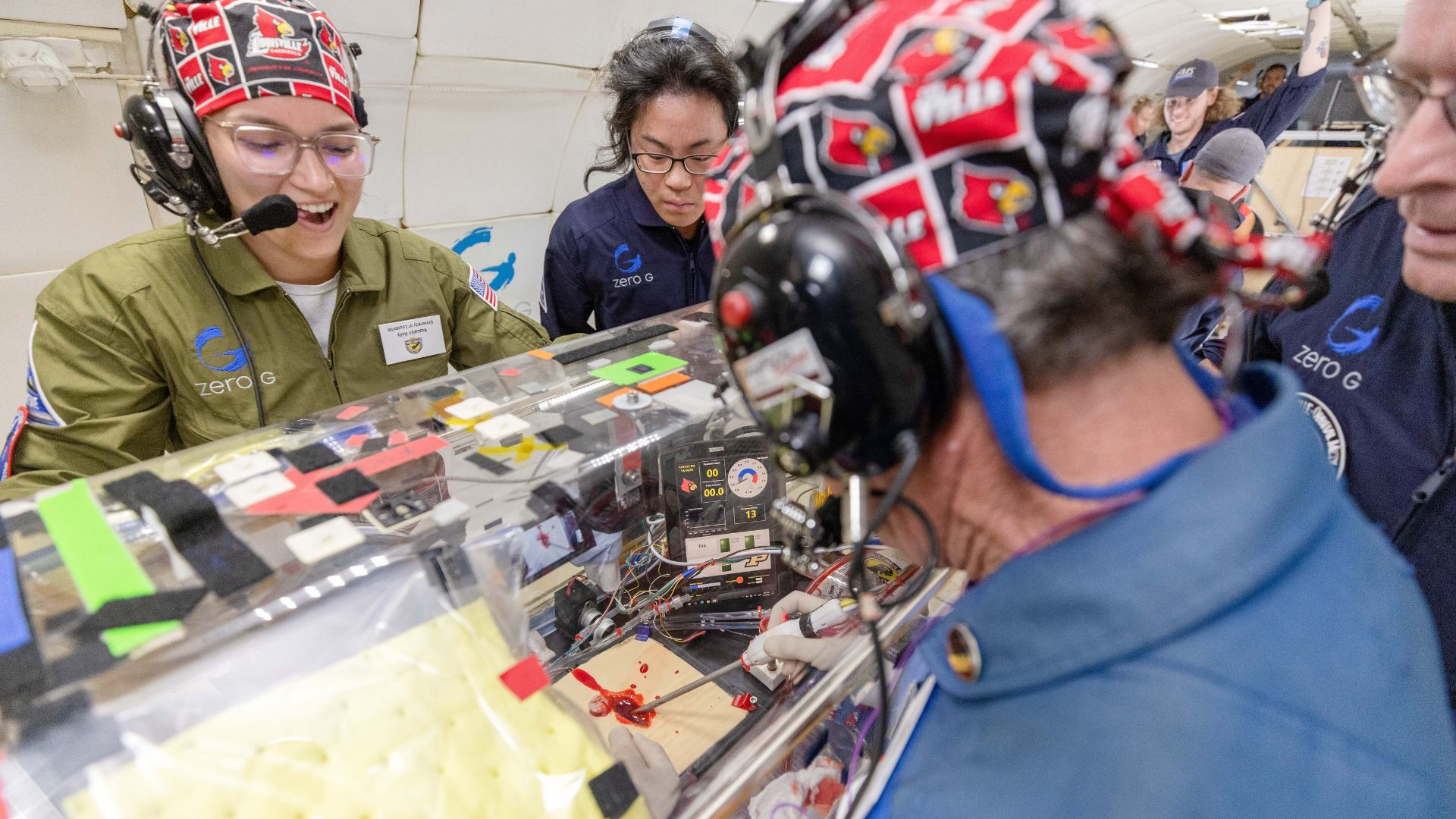
[ad_1]
“Conducting surgery in space is not something we’ve had to contend with yet, but the further we travel from Earth, the more likely it is that we will need expanded medical capabilities,” stated George Pantalos, Ph.D., principal investigator for the Surgical Fluid Management System (SFMS) on the University of Louisville.
“And because of the microgravity environment, surgery and wound care in space will be very challenging.”
On November 15 and 16, experiments in microgravity examined the latest enhancements to the SFMS on the University of Louisville.
The system was launched on the modified airplane G-FORCE ONE from Zero Gravity Corporation, which creates temporary microgravity bursts to assist technological testing in one of the difficult house environments.
Surgery in Space

A collection of space-based surgical features have been examined in microgravity on a number of flights from Zero Gravity Corporation and Virgin Galactic with assist from NASA.
Blood clots and different fluids from surgical websites or wounds may float right into a spacecraft’s cabin within the absence of gravity, polluting tools, and maybe introducing illness.
The SFMS has a transparent dome that seals tightly to the pores and skin of the affected person and affords insertion locations for surgical instruments whereas stopping fluid leakage.
Suction, irrigation, lighting, imaginative and prescient, and cautery are all features {that a} multi-function surgical gadget (MFSD) can perform in a single wand-like tools.
“For long-duration human spaceflight missions to the Moon, Mars, and other destinations, there is a need to monitor the state of astronaut health and, when necessary, make the appropriate interventions in response to health changes or the onset of disease,” stated Richard Mathies, Ph.D., principal investigator for the Lab-on-a-Chip.
[adinserter block=”4″]
[ad_2]
Source link